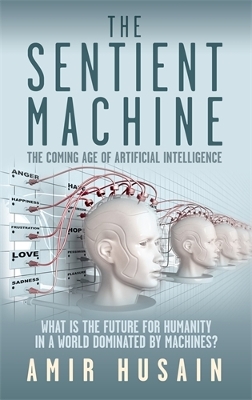
We are already living in the future. Artificial intelligence is playing an even-greater role in society: from the 'weaponization' of software to the possibility of a post-antibiotic age. The Sentient Machine is the perfect guide to this brave new world.
Amir Husain outlines the history behind artificial intelligence from the creation myth of Frankenstein to the advances made by technology innovators such as Elon Musk. Amir Husain asks the essential question: what is the future for humanity in a world that is dominated by machines?
Will machines solve all human problems or will they lead us down a dystopian path to human irrelevance? Husain asks what will be the consequences - from job losses, our future, to the existential questions. How are we intelligent, what constitutes progress, how can AI bring us to "the good life"?
How can humans prevent ceding decisions to the network of autonomous systems that increasingly surround us?
One of the world's leading technologists looks at our future as we are on the cusp of a second Big Bang, when machines can think independently from us. Will the increasing role of artificial intelligence heal or harm our society?
In The Sentient Machine, Amir Husain addresses complex computer science concepts in plain language and illustrates his points drawing on a wide variety of cultural and historical references. This is an accessible guide to a fascinating subject.
A book that could be adopted onto computer science courses, and some philosophy courses.
Great Overview Of Pervasive AI. This book is a love story to coding and its arguably most advanced manifestation - artificial intelligence. Husain spends quite a bit of time explaining what, exactly, AI is and its history, where we currently are, and where we will be in the near future. He then spends considerable time looking at various areas where AI research is already being done and where it is already having an impact. His praise of the idiot John Maynard Keynes is a bit too effusive, and is indicative of how wrong Husain's thinking can be when he leaves the programmatic space. While this is but one concrete example, there are numerous others too that are the basis of the drop of a star. Among these are his praise for National Security Agency spying as well as domestic police spying on every day citizens, disregard of Constitutional freedom protections, labeling anything he disagrees with as a "myth", and a few others. Still, quite a remarkable book when it sticks to its central thesis, and highly recommended.
Reading updates
-
Started reading
-
27 February, 2020:
Finished reading
-
27 February, 2020:
Reviewed
